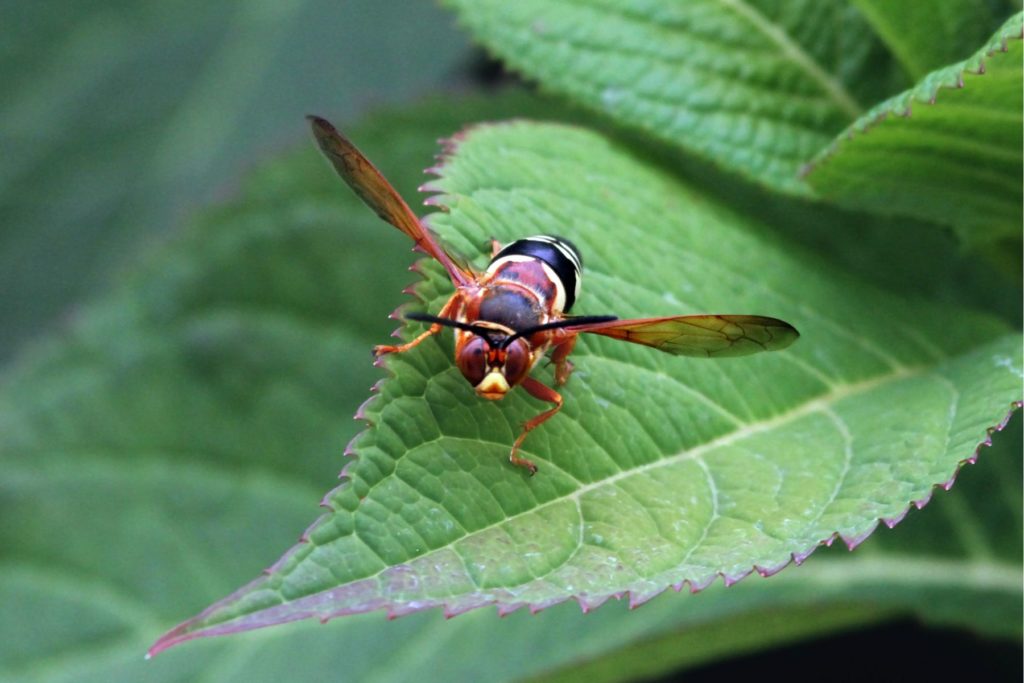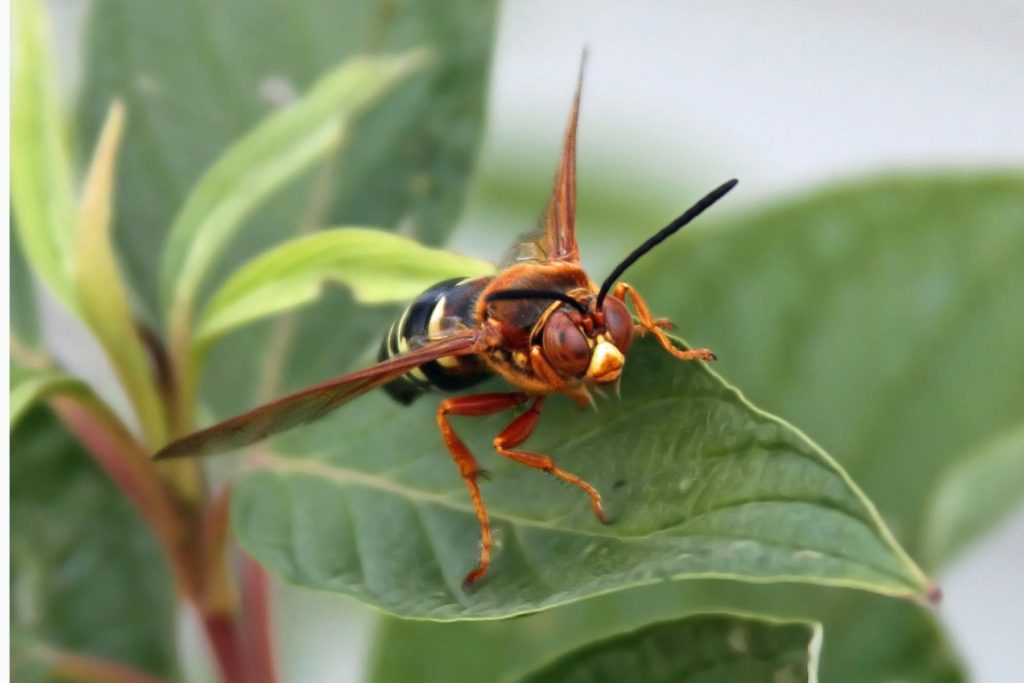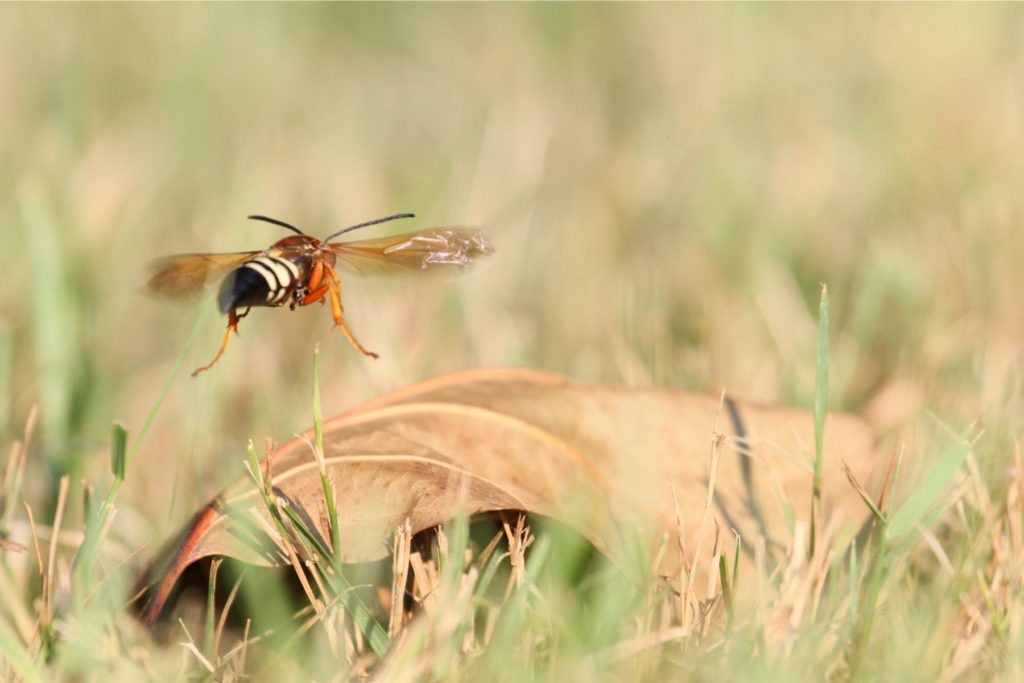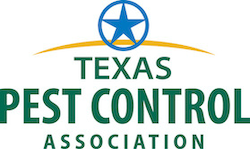cicada killers

- Cicada killers are one of the largest wasps in the United States, reaching a size of approximately 1.5 inches in length. They are black overall or rusty in color, with yellow band markings on the abdominal segments, a rusty red head, russet colored wings, and thorax..
- They are considered beneficial insects since they prey on adult cicadas.
- People usually encounter the male cicada killer, which is stinger-less and therefore harmless. The females rarely sting and only do so if handled.
- Cicada killers choose sites with specific characteristics. They prefer well-drained, light-textured soils in full sunlight that are near trees harboring cicadas.
- They dig along sidewalk or patio edges, in flower beds, gardens, or lawns. As much as 100 cubic inches of soil may be brought to the surface as tunnels are formed. This can be unsightly in highly managed turf and the accumulations may smother grass.
- Large aggregations of cicada killers can build up over time. An estimated 40% of the developing larvae (a dozen or more per tunnel) may emerge as adults the following year so numbers can increase rapidly.


- Adult female cicada killers paralyze the cicada with her venomous sting. She then carries the cicada to a burrow, where she places the cicada. She lays an egg under the left or right second leg of the cicada. The egg hatches and the larva begins to eat the cicada while taking care to keep it alive. Once the larva has had its fill, it spins a cocoon, in which it will change into an adult wasp.
- Some species of Cicada Killer Wasps show a preference for female cicadas (S. hogardii), and some seem to prefer male cicadas (S. grandis), but it is not clear why.
- There are five species of Cicada Killer Wasps in the Americas. The Eastern Cicada Killer is found in Texas, as well as Ontario, Canada, Mexico and parts of Central America.
References
Siddle, Dani. “10 Facts about Cicada Killer Wasps.” Cicada Mania, 23 Feb. 2015, www.cicadamania.com/cicadas/10-facts-about-cicada-killer-wasps/.
“Cicada Killer.” Field Guide to Common Texas Insects, texasinsects.tamu.edu/cicada-killer/.






